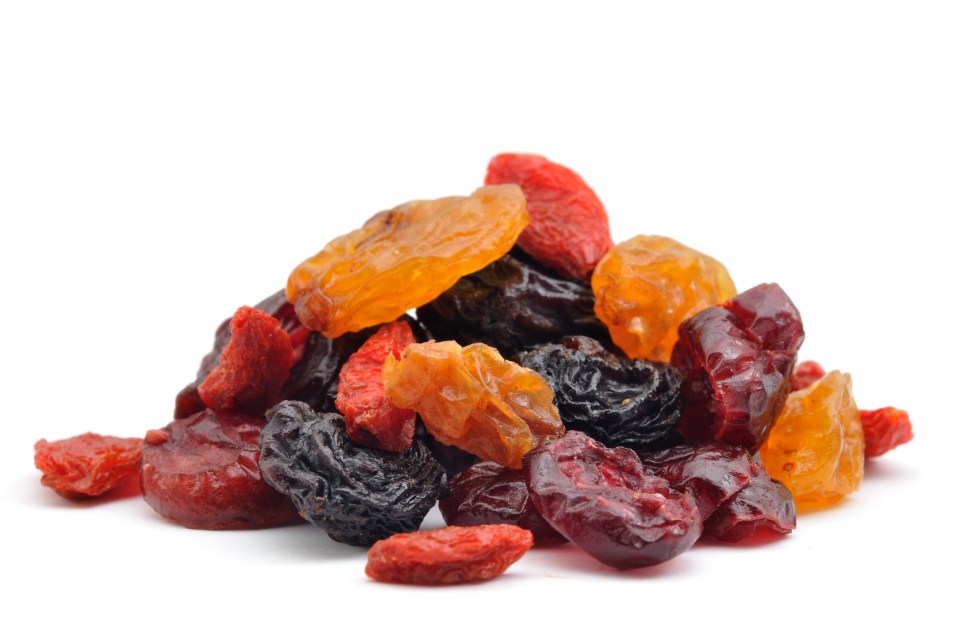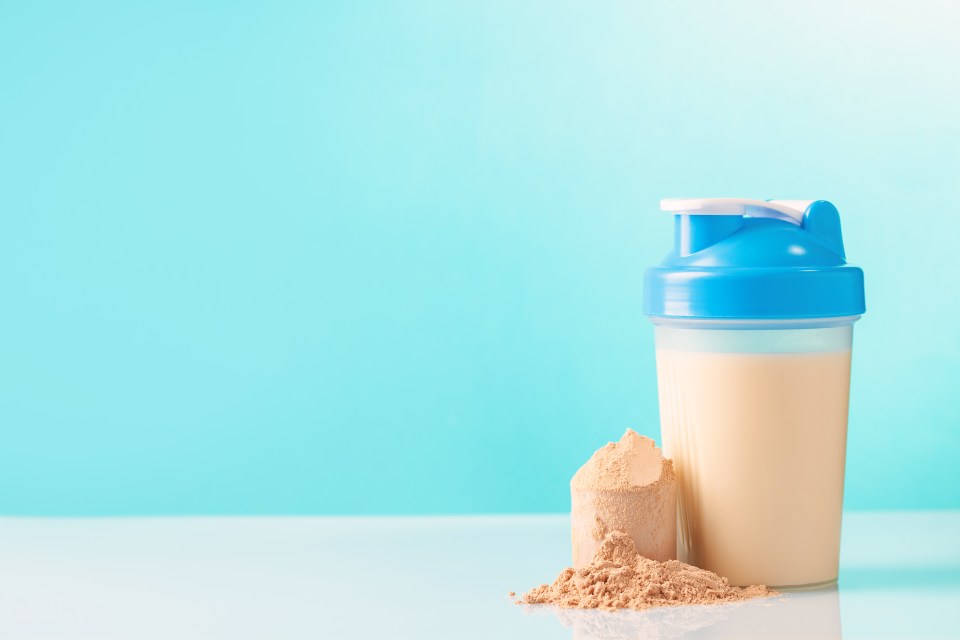WHILE the nation becomes more health-conscious, companies are going the extra mile to try to fit in – just take a look at the new Mars and Snickers Protein bars!
Now, nutritionists are worried we are falling for fake “healthy” foods.
The “health halo” effect is when a single claim, such as being organic, is used to convince us it’s good for us.
“Many products are labelled with buzzwords such as ‘natural’, ‘low-fat’, ‘gluten-free’ or ‘high-protein’, which can create the illusion they’re nutritious, when in reality they may be highly processed and packed with added sugars and unhealthy fats,” says dietitian Karine Patel, founder of .
Some products are ultra-processed, meaning they’ve been stripped of nutrients and had extra substances added to them.
Karine explains: “These often include added sugars, which can lead to weight gain and chronic diseases, including diabetes and heart disease.”
read more on wellness
So, what should we focus on?
Karine says: “Understanding food labels, focusing on nutrient density, rather than calorie counts, and choosing minimally processed foods can help achieve health goals without falling for misleading marketing tactics.”
We lift the lid on snacks that don’t fit the bill. . .
Is Snacking Bad For You?
“It’s the effect of regular consumption of sugary, processed snacks that is the real issue,” explains Hannah.
“They can lead to problems such as insulin resistance, gut imbalances and weight gain.”
But choosing your snacks wisely can help with weight loss, digestion and energy levels.
Smoothies
We should be wary of shop-bought smoothies.
Most read in Wellness
“These often contain added sugars, preservatives and high-calorie ingredients like syrups,” says Hannah Trueman, lead nutritionist and dietetic medicine specialist at Body Fabulous.
Home-made smoothies, however, can provide lots of nutrients and help sustain energy.
Use your favourite fruits and vegetables, along with some healthy fats – think Greek yoghurt or avocado – as well as protein, like nut butter and chia seeds.
Flavoured Yoghurt
Top of the to-be-avoided list are flavoured yoghurts.
While they are a source of protein and calcium, they often come packed with added sugars.
Even “low-sugar” alternatives have artificial sweeteners and flavourings.
“These additives can lead to blood-sugar spikes, increased cravings and even digestive discomfort,” says Karine.
“Plain and Greek yoghurt are high-protein, low-sugar options rich in probiotics to support gut health,” says Ann Garry, qualified nutritionist, CEO and co-founder of Health Coaches Academy.
Use a drizzle of honey, a sprinkling of cinnamon or a piece of fruit – think mashed banana – to sweeten your snack.
Granola Bars
Karine would never eat a shop-bought granola bar.
“Many assume them to be healthy due to their association with oats and nuts,” she says.
However, they can contain up to 300 calories and lots of sugar.
“Homemade gronola is a much healthier alternative, with minimal added sweeteners,” says Karine.
For a snack, make your own trail mix using nuts and dark chocolate or coconut for a bit of sweetness.
Vegetable Crisps
You might assume that the vegetable kind are much healthier than regular crisps, but they’re often fried or baked with added oils and salt.
“If you’re after something crunchy and flavoursome, put chickpeas in the oven for 30 minutes (or less in an air fryer) with a drizzle of oil and spices such as paprika.
"They’re a great source of protein, which helps with lessening blood-sugar spikes,” says Ann.
Dried Fruit
If you’re snacking on fruit, choose fresh where possible.
“Dried fruit is highly concentrated in natural sugars, because the water content has been removed,” says Ann. “
This can lead to blood-sugar spikes.
"Some are coated with more added sugars or preservatives.”
That said, dried fruit can help constipation, although Ann recommends opting for fresh berries, which are rich in fibre and antioxidants instead.
Pair raw fruit with protein or a healthy fat, Hannah says, especially if you are diabetic or prediabetic.
“Try apple slices with almond butter, as this will help slow sugar
absorption.”
Protein Bars and Shakes
Protein is put on a pedestal when it comes to health, and while it’s true that it supports weight loss, exercise recovery and muscle definition, relying on shop-bought protein bars and shakes may not be the best choice.
“They contain significant amounts of added sugars, artificial sweeteners and low-quality protein sources,” says Hannah.
Read More on The Sun
She suggests making shakes at home with a high-quality protein powder.
“Look for one with minimal ingredients and no added sugars or preservatives
How to Spot Fake ‘Healthy’ Snacks
Ann Garry’s top tips for making smart snack choices
Ingredients: The shorter the list the better, as ultra-processed foods are generally considered those with five ingredients or more.
Question any ingredients that you can’t find in your own kitchen cupboards.
Nutrition: Aim for snacks with less than 5g of sugar per serving. Healthy snacks usually have at least 2-3g of fibre.
They should also have a balance of protein and healthy fats – use the traffic-light system on the packaging to guide you.
Servings: Think about how much you’d actually eat of a product – it may be a low-calorie popcorn, but are you going to scoff the entire bag?
Or has the manufacturer suggested unrealistic serving sizes to get away with calling a product healthy?
For example, people often don’t spot that the recommended serving size of fruit juice or a smoothie can be just 150ml.
Unlock even more award-winning articles as The Sun launches brand new membership programme - Sun Club.















